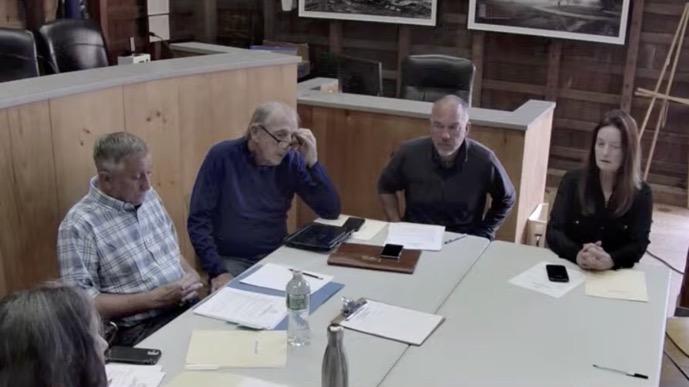About two months after a Suffolk Supreme Court judge froze their bank accounts — a result of the yearslong, and ongoing, Truck Beach litigation — the East Hampton Town Trustees regained control of their money on May 23.
In the interim, individual trustees had dipped into their own pockets to pay their employees. They couldn't pay their usual bills for things like pump-out boat fuel, legal notices, internet access, and even taxes owed to the Internal Revenue Service. Court records show that Justice Thomas F. Whelan eventually allowed them to make payroll payments, but nothing else.
Full access to their accounts was restored only after the trustees posted a bond to cover 120 percent of what the plaintiffs in the Truck Beach case say they are owed, nearly $800,000. The plaintiffs' attorney, James Catterson, agreed that it was satisfactory and filed a motion to remove the freeze on the trustees' assets.
The bond essentially prevents the plaintiffs from claiming the trustees' money pending the outcome of an appeal. Francis Bock, clerk of the trustees, said in a recent interview that they had been in the process of obtaining the bond when the order freezing their assets came down from Justice Whelan.
This is a case that dates back to 2009, when five property owner associations brought action against East Hampton Town and the trustees claiming ownership of the 4,000-foot stretch of Napeague beachfront commonly called Truck Beach. The town and trustees then lost a lengthy appeals process, which also saw a judge hold them in contempt.
The freezing of the assets, in a motion brought by Mr. Catterson on behalf of the Napeague homeowners associations, was viewed by the trustees as malicious. Mr. Catterson has said he was merely doing what any lawyer would do to protect his clients' interests.
"I think it's pretty shameful that this group of super-wealthy landowners were willing to go to this extent. They knew full well that we were in the process of posting that bond," Mr. Bock said in an interview prior to the release of their money.
Mr. Catterson responded this week. "Forget about the rights or wrongs of it," he said. "The rule of law is that when a court issues an order, even if you disagree with it, you still obey it, but you appeal. That's the way the law works."
What, now, for the trustees?
"When [Justice] Baisley made the determination a few years ago, he didn’t erase the reservation," Jim Grimes, the deputy clerk of the trustees, said this week, referring to the trustees' 1882 sale of 1,000 acres in Napeague and Montauk to Arthur Benson — a deed that still reserved the public's right to continue fishing "and fishing-related activities" on the beach.
The reservation "is still very much there," Mr. Grimes said, "but what he didn't do is put language in his determination as to what that reservation means. That's where the trustees are sitting right now. We have notices into the court and have been sitting on this for quite some time now, several years, to have the judge articulate what he thinks that meant. . . . If we could have some dialogue with the plaintiffs here, I think reasonable minds could work out some language that gives the people of East Hampton what they feel they deserve and also respects the rights of the property owners."
That is what they've been trying to accomplish all along, Mr. Catterson said, adding that settling "would be the smartest thing to do." However, he maintained, "We have repeatedly tried to resolve the matter with the trustees' counsel without any success whatsoever."




